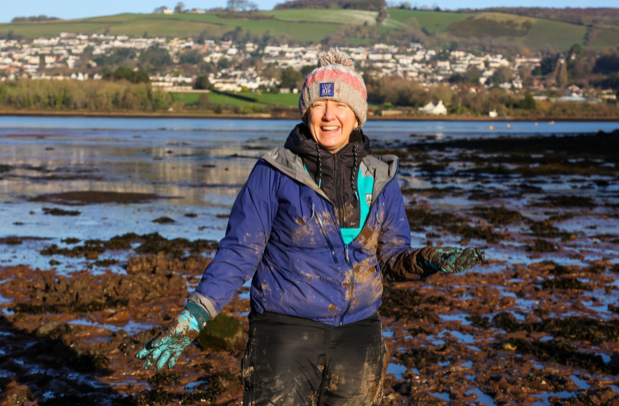Primary Times - the definitive what’s on and where to go family guide of activities and events for children of primary school age. Things to do with your kids during the school holidays including arts and craft activities, music and theatre for children, parties, competitions, days out, and family attractions along with term time drama schools, dance classes, after school clubs and sports activities. Things to do at a place near you!
Why urgent action is required in UK schools on ocean literacy - by Dr Ceri Lewis
 Why urgent action is required to educate the next generation on how ocean health is critical to sustain life on earth and the steps educators can take
Why urgent action is required to educate the next generation on how ocean health is critical to sustain life on earth and the steps educators can take
With sewage dumping in British waters, a deluge of harmful household cleaning products polluting the sea, and overfishing depleting precious species, the ocean has never been so under threat. Steps need to be urgently taken to preserve the marine ecosystems to prevent climate change worsening.
This is the call to action by marine scientist, Dr Ceri Lewis from University of Exeter who has for over a decade researched the tiny creatures in marine environments and, as part of her role as lead scientist on the Convex Seascape Survey, their ability to store carbon.
The Convex Seascape Survey is a pioneering, five year partnership led by ocean conservation charity Blue Marine Foundation, University of Exeter and Convex Insurance Ltd. The aim of the survey is to deliver brand new open-source data on how the seascape stores carbon, ultimately providing the answers the world needs to fully incorporate the ocean into efforts to slow climate change.
As partners of the Convex Seascape Survey, Blue Marine Foundation's Education Unit works to illuminate the Ocean-Climate nexus and its role in engaging the next generation with ocean restoration and conservation. We recognised the centrality of this research to understanding the ocean's role in climate regulation, carbon storage and climate change mitigation. As such, running parallel to the survey, we support an innovative education programme helping teachers worldwide to embed these critical themes into the curriculum." (Victoria Turner, Education Lead at Blue Marine Foundation)
Ocean literacy in British schools
Passionate about the tiny benthic invertebrates who call the seabed their home, Dr Ceri is a vocal advocate of ocean literacy being introduced into the British school curriculum.
She explains: “The ocean is currently under the most stress it has even been - caused by humans. If we don’t reduce those impacts soon, we’ll see long lasting damage to the oceans, and we’ll feel the effects not just in terms of less fish to eat but also, importantly, the ocean will be less able to take up heat, and store less carbon, leading to dramatic increases in global warming.”
“Many believe the ocean to be a big expanse that is so large it's difficult to comprehend. But as David Attenborough said, “you only protect the things you understand,” so it's vital that we educate children on how important the ocean is for a healthy planet, and how we need to be looking after it, just as much as the amazon rainforest.”
Creatures below the surface play a critical role in life support, climate regulation, biodiversity and human economies, yet the education system today touches little on the ocean. This is why Dr Ceri, in collaboration with Encounter EDU, has helped formulate practical steps for educators to incorporate ocean education into their curricula.
She says: “With the Convex Seascape Survey and our education work, we are explicitly connecting the ocean and climate change for the first time. It cannot come at a more important period, and we aim to have these resources reach 5 million young people across the world.”
Her advice for teachers includes:
• Art and English are important subjects which can be used to bring the ocean to life in storytelling for youngsters. Get creative and capture their imagination, whether it's making clay models of sea worms or painting pictures of sea potatoes. We have worked with artist Naomi Hart to bring the findings of the Convex Seascape Survey to life, through creating artwork of the creatures that live in the sea and sequester carbon.
• Create awe and wonder about the ocean, especially for young primary school children, explaining what lies beneath and simple actions they can take to sustain ocean health. For a previous environmental initiative which rolled out to schools - the Catlin Arctic Survey - scientists got children excited about plankton, which is one of the most important organisms on the planet.
• Get outdoors and go on trips - rockpooling is one of the best activities to educate children about the vast biodiversity of the ocean environment, and what better way to learn than to experience the environment firsthand.
• Introduce ocean references to existing parts of the curriculum. We learn about photosynthesis and respiration but it's usually in relation to flowering plants - why not talk about it in the capacity of a marine environment too?
Overcoming educational barriers
Since embarking on ocean literacy education over a decade ago, Encounter Edu’s ocean resources have reached an estimated 18.5 million students and educators worldwide. The resources include teacher instructions and guides on how to introduce marine biology and ocean conservation into the curriculum. Teacher training weekends even took place in Southampton, involving a trip out on a boat, rock pooling, and exploring the beach so the teacher’s could see for themselves the beauty of the ocean and the fragility of the marine environments at risk today.
Dr Ceri explains: “Teachers shared with us what the barriers were in terms of introducing ocean literacy into the curriculum. They hadn’t received any specific training on the ocean as part of their PGCE’s and so lacked confidence in bringing it into lessons. We also heard that not many children, particularly those in inner city schools could afford trips to the seaside and don’t have access to wellington boots or waterproofs, so there are limitations there too.”
Photo credit: Dr Adam Porter, University of Exeter



